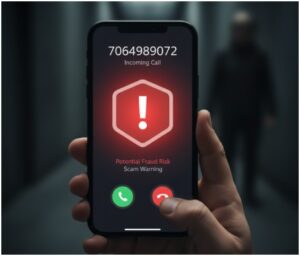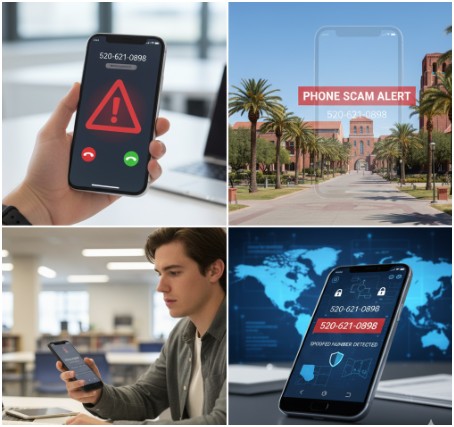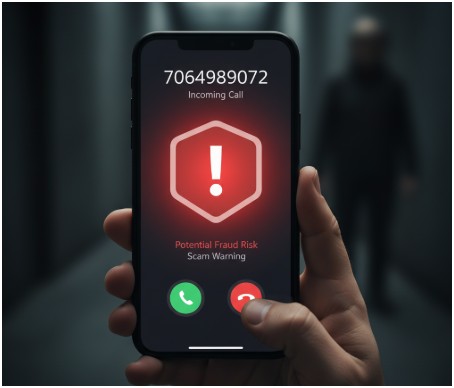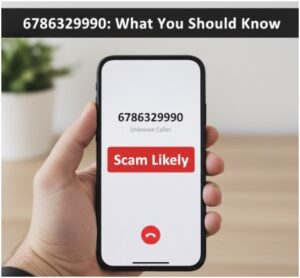I still remember the first time I saw 5206210898 flash on my phone. It looked like a regular Tucson number, and part of me thought it might be something official. Later, I found out it’s often connected to University of Arizona Online, but that doesn’t mean every call from it is safe.
Scammers know how to spoof real numbers, and this one has appeared in plenty of spam call reports too. I want to walk you through what I’ve learned about it, why you should be cautious, and how to protect yourself.
What Is 5206210898 Actually Connected To?
This number belongs to Arizona Online, the online degree division of the University of Arizona. They use it to contact prospective and current students about admissions, enrollment steps, financial aid, and course details.
If you’ve shown interest in an online program, you might get a call from 5206210898 about next steps or required documents.
But here’s the catch: scammers often spoof real university numbers to gain trust. They pretend to be from a legitimate source so you’re more likely to pick up and share personal details. That’s why you need to verify who’s really behind the call before you say anything.
Why 5206210898 Appears in Spam Reports
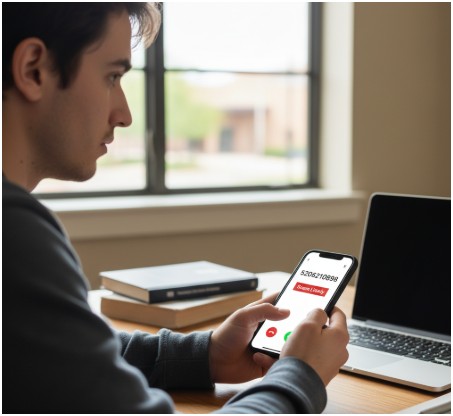
I started digging through online forums, caller ID apps, and phone number lookup sites, and I saw the same warning pop up: 5206210898 is frequently flagged as a potential spam call.
Some users said they received robocalls pretending to offer “student aid” or “enrollment help” even though they’d never contacted the university. Others said the caller asked for sensitive information right away — a classic red flag.
This tells me one thing: even though the number is linked to a real institution, you can’t assume every call from it is safe. Scammers know that when you see a familiar area code and a known number, you’re more likely to answer.
How Scammers Use 5206210898 to Trick You
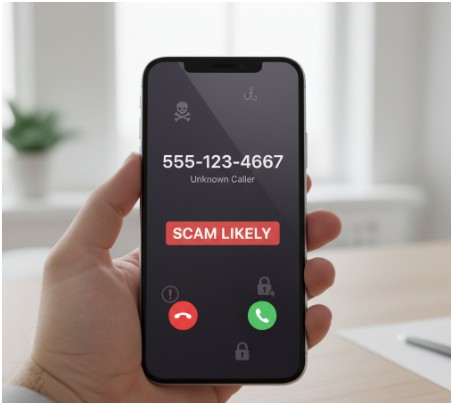
Spoofing is a technique where scammers disguise their real number and make it look like a trusted one. They use this to bypass call-blocking apps and gain instant credibility.
When the number shows up as “University of Arizona Online,” it’s easy to let your guard down. Then they hit you with fake financial aid offers or phishing questions.
Some even use urgency: “Your enrollment will be canceled if you don’t verify your Social Security number right now.” That kind of pressure is a sign something’s wrong. A real university representative will never demand sensitive data over an unsolicited call.
Red Flags to Watch for When 5206210898 Calls
I’ve built a habit of looking for patterns before I trust any unknown caller. Here’s a quick breakdown of red flags and how you should respond if you see them:
| Red Flag | What It Means | What You Should Do |
| Caller asks for Social Security number or bank info | Likely a scammer trying to steal identity | Hang up immediately |
| You never contacted University of Arizona Online but they claim you did | Spoofing attempt or phishing scam | Do not share any details |
| The call is a prerecorded robocall | Automated spam pretending to be official | Block the number |
| Caller pressures you to act immediately | Scammers use urgency to bypass logic | Stay calm and verify independently |
| Caller ID shows “Arizona Online” but caller can’t verify details about you | Likely a spoofed call | Hang up and call the official number back |
If any of these happen, it’s safest to end the call and dial 5206210898 yourself from the official University of Arizona website. That way, you’re speaking directly to a verified staff member.
What To Do If You Get a Call from 5206210898
Here’s how I handle it step by step:
- Don’t answer immediately. If you’re not expecting a call, let it go to voicemail.
- Check the message. Real university staff usually leave detailed messages with callback instructions.
- Search the number. A quick lookup often reveals whether others have reported it as spam.
- Call back using official info. Go to the University of Arizona Online site and confirm the number before calling back.
- Report suspicious calls. Apps like Truecaller or RoboKiller let you flag the number, which helps warn others.
I’ve done this a few times and found that if it’s really Arizona Online, they’ll follow up with an email too. Scammers usually won’t.
Why This Matters Even If the Number Is Real
It’s tempting to assume that because 5206210898 is associated with a respected university, it’s always legitimate. But that’s not how phone scams work anymore.
Scammers exploit trusted numbers because they know we lower our defenses. Even if 90% of calls from this number are real, the 10% that aren’t could still put your personal data at risk.
That’s why I treat every unexpected call the same way: with caution, curiosity, and verification.
FAQs About 5206210898
Q1: Is 5206210898 a scam number?
It’s not inherently a scam number — it belongs to Arizona Online at the University of Arizona. But scammers often spoof this number to trick people, so you should always verify the caller’s identity.
Q2: What should I do if I answered and shared information?
If you gave personal details to a suspicious caller, contact your bank, change your passwords, and consider placing fraud alerts on your accounts. You can also report the incident to the FTC.
Q3: Can I block 5206210898?
Yes, you can block it like any other number. If you’re a student or applicant and worry about missing real calls, consider letting unknown calls go to voicemail instead and then verifying them.
Q4: Why does 5206210898 keep calling me?
If you haven’t contacted Arizona Online, repeated calls could be part of a robocall campaign or spoofing attempt. In that case, block the number and report it through your carrier or a call-blocking app.
Stay Smart and Stay Safe
Whenever I see 5206210898 pop up, I pause before I act. It might be a genuine call from University of Arizona Online, but it could also be someone pretending to be them.
The best thing you can do is verify everything — check the official site, call back using verified contact info, and never share personal details with anyone who calls you out of the blue.
Phone scams evolve constantly, but a cautious mindset will always be your best defense. If you’re ever unsure, hang up and contact the university directly. A real institution will never mind you double-checking.




